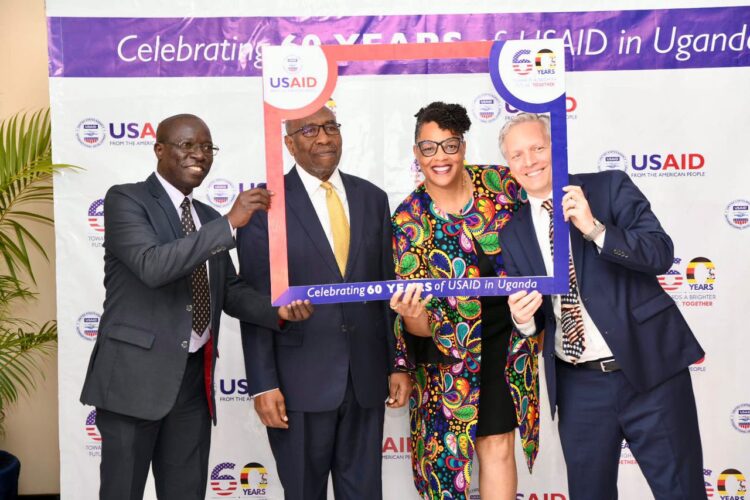US challenges govt on upholding human rights

By Ritah Kemigisa and Arthur Wadero
The US government has challenged the government of Uganda to uphold human rights if it is to achieve social-economic transformation.
The call was made last night by the outgoing US Ambassador Natalie Brown while officiating at an event where the U.S. Agency for International Development (USAID) was celebrating 60 years of partnership with the Ugandan people.
Former Ugandan Prime Minister, Dr. Ruhakana Rugunda was the chief guest at this event.
Over the decades, USAID has worked in close collaboration with the government and the people of Uganda investing in health, tourism, education, and agriculture.
Ambassador Brown said much as the US has made meaningful accomplishments over the years in Uganda, a number of challenges still abound but recommitted to working towards a brighter future.
“Real development can only happen when all people are equal in dignity and rights. This is not an easy task… the U.S. government also seeks through all its engagement to support development in a way that enhances human rights and human dignity abroad,” said Ambassador Brown.
Ambassador Brown has meanwhile appealed to the government to support the civil society saying it is also a major link to economic prosperity.
Speaking at the same event, Dr. Moses Isooba, the executive director, Uganda National NGO Forum asked the US government to increase support to local and indigenous civil society organizations in order to consolidate the gains and investments and in order to ensure local ownership of these investments by the Ugandan people.
“This is one of the ways to empower the Ugandan people to take responsibility for their destiny,” said Dr. Isooba.
On his part, the USAID mission director Richard Nelson said using their software and people-centered approach, they have made a number of achievements including helping the Uganda Revenue Authority collect an additional 1.3 billion dollars, protecting over 4 million Ugandans against Malaria among others.
“ It’s often hard to measure the impact of this software/people-oriented approach, but here’s what it looks like: fewer people are dying of disease and poor health, more children can read, more people will go to university, more farmers are feeding their families, businesses are hiring more people, the fiscal deficit is significantly smaller than it would be, there’s less gender-based violence, fewer children will be abused in school, more refugees have food to eat, and more people will understand their rights and are able to exercise them. All of this contributes heavily to the economy and social welfare of Uganda,” he said.
According to Nelson USAID alone has invested nearly $1.5 billion since 2020 when he started work in Uganda.







